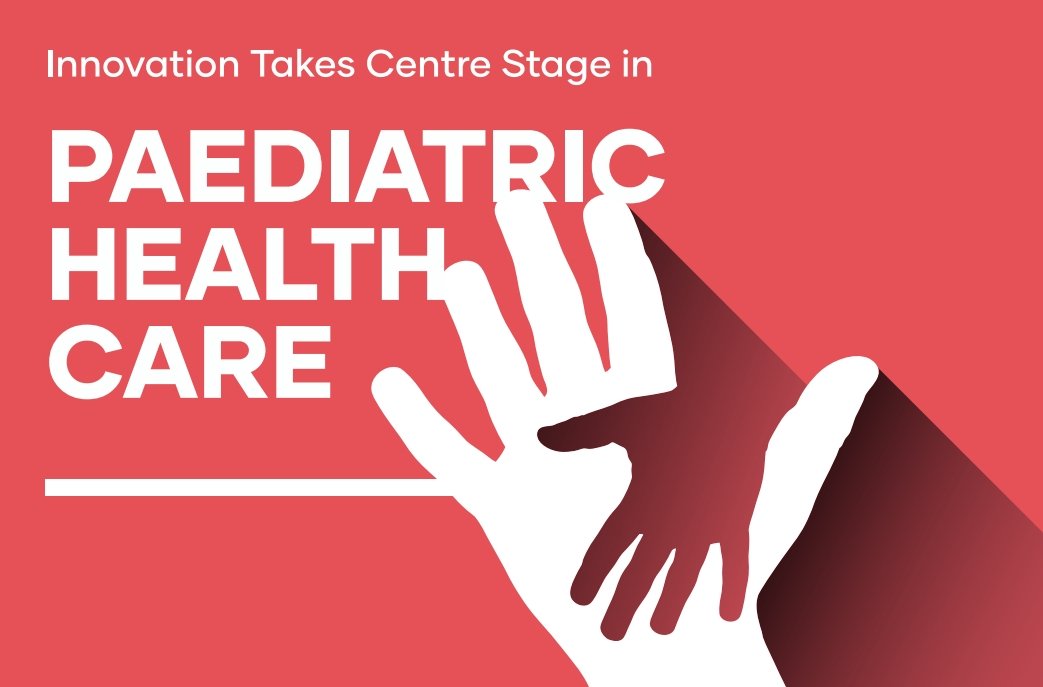
image credit- shutterstock
Innovations in paediatric healthcare are rapidly advancing in the Asia Pacific region, driven by new technologies and collaborative efforts to improve children's well-being. From cutting-edge medical devices improving preterm births, to technology addressing mental healthcare and advanced genetic screening, Asia Pacific is leaving no stone unturned in its efforts to enhance paediatric care.
Newborn genetic screening is advancing significantly in the region. Traditionally focused on detecting a limited number of rare diseases with early onset and established treatments, such programmes are now integrating genomic sequencing to enhance early detection and intervention.
A pioneering study by Chinese firm BGI Genomics highlights the potential of gene panels as a primary screening tool, benefitting approximately one out of every 500 newborns. This approach is part of broader efforts across the APAC region, where studies like the Epi-Genomic Newborn Screening (EpiGNs) programme in Victoria, Australia, aim to identify conditions linked to intellectual disability, autism, severe obesity, and seizures through genomic analysis as part of routine heel prick tests.
Another study in Australia, the Baby Beyond project, funded by the government, plans to sequence the genomes of 1,000 newborns to screen for around 500 treatable childhood-onset disorders. This initiative builds upon earlier efforts and underscores the potential of integrating genomic data into electronic health records (EHRs) for ongoing healthcare management and research.
Meanwhile, in Singapore, the BRIDGES team conducted a study involving 196 children enrolled in the Singapore Undiagnosed Diseases Research Endeavour for Kids (SUREKids) study. Through genomic sequencing, they successfully diagnosed 37.8 per cent of children who had previously undergone genetic tests without diagnosis or whose symptoms did not match known genetic disorders. These findings, with diagnostic yields ranging from 25 per cent to 40 per cent, represent the higher end of global standards, highlighting the effectiveness of such programmes.
Professor Patrick Tan, the then Executive Director of the Genome Institute of Singapore said, “Genetics is a useful tool to gain insight into the underlying causes of childhood disorders, and explore possible treatment strategies. The BRIDGES programme illustrates the potential of multi-institutional collaboration working closely to solve problems of medical importance.”
In India, where congenital and hereditary genetic diseases pose a significant health burden, the Department of Biotechnology (DBT) has launched the UMMID Initiative. Aimed at prioritising prevention over cure, this initiative targets urban areas where congenital malformations and genetic disorders rank as the third leading cause of newborn mortality. Given India's large population and high birth rate, coupled with prevalent consanguineous marriages, genetic disorders are pervasive. UMMID's objectives include establishing NIDAN Kendras in government hospitals to offer comprehensive genetic counselling, prenatal testing, diagnosis, and multidisciplinary care, particularly in high-patient influx areas. The initiative also focuses on training clinicians in Human Genetics and implementing screening programmes for pregnant women and newborns in aspirational districts.
Prioritising mental health
There has been a notable increase in efforts to address paediatric mental health. It's encouraging to see both companies and governments taking steps to tackle the crisis, supported by studies showing a rise in children diagnosed with mental health conditions. Singapore is actively partnering with global researchers to uncover the root causes of this trend. Further research is crucial to grasp the growing prevalence of youth mental health issues in Singapore, possibly influenced by factors like extensive social media engagement and the necessity for more opportunities for unstructured play and independence.
In 2020, the Singapore Children’s Society identified mental health concerns among children and young persons (CYP) as pivotal challenges to their well-being. In response, it launched the Oasis for Minds Services (OMS). Its objective is to offer a seamless continuum of care from mental health promotion and accessible early intervention to recovery-focused services. This initiative aims to empower beneficiaries to thrive positively and foster a sense of safety and inclusivity within the community. Singapore also unveiled a comprehensive mental health and well-being strategy designed for both children and adults.
COVID-19 has further underscored the need to strengthen mental health and psychosocial support (MHPSS) systems across East Asia and the Pacific, where access to such services has historically been limited. This crisis has disproportionately impacted children, adolescents, and caregivers, exacerbating conditions like depression and anxiety. Responding to these needs, UNICEF has developed a comprehensive approach that integrates MHPSS into various sectors beyond healthcare alone. This initiative aims to support children throughout their lives with a holistic and agile framework. Four countries were engaged in the process, Thailand, Malaysia, Papua New Guinea and the Philippines, and the research resulted in the development of a regional MHPSS framework. The purpose of the regional framework is to define mental health issues that are a high priority for the region and provide detailed guidance to support implementation, with a focus on describing sectoral roles and recommendations to strengthen a multi-sectoral mental health system. The report also identifies key recommendations to operationalise the framework and highlights the gaps and challenges which need to be addressed, some of which include identified gaps in programmes for marginalised and vulnerable children and adolescents and a limited availability of community based, adolescent friendly multidisciplinary care for mental health conditions.
Meanwhile, Australia has taken significant steps, including a $30 million investment to improve children's mental health and wellbeing, alongside launching the world's first children's mental health and wellbeing strategy. This strategy provides a comprehensive framework to support the mental health of children aged 0-12 and their families, aiming for an integrated system of care and support.
The then Assistant Minister to the Prime Minister for Mental Health and Suicide Prevention, government of Australia David Coleman, said, “Half of all adult mental health challenges emerge before the age of 14, yet few children below the age of 12 receive professional support. We need to acknowledge this and do everything we can to change it,” while launching the National Children's Mental Health and Wellbeing Strategy on October 12, 2021.
Startups are actively addressing paediatric mental health challenges. One such initiative is Singaporean tech startup Neeuro, collaborating with the Institute of Mental Health to unveil their home-based attention training programme. Named Cogo, this digital therapeutic aims to tackle inattentiveness in children aged 6-12 years through a 24-session guided game. The programme utilises Neeuro's Brain-Computer Interface technology and is paired with the SenzeBand 2 EEG headband.
Enhancing network of care
Efforts are underway to enhance paediatric care through innovation, research, and strategic investments in infrastructure and training.
In Singapore, KK Women’s and Children’s Hospital (KKH) and National University Hospital (NUH) have initiated PaedsENGAGE (ENGagement and GP Empowerment), a pioneering programme in collaboration with general practitioners (GPs). This initiative aims to expand the role of GPs in the community by providing specialised training. GPs will gain the necessary skills to manage paediatric medical conditions effectively, including determining if further observation or intervention at Children’s Emergency is necessary.
Meanwhile, Australia's CareTrack Kids study represents a significant national effort to assess healthcare standards for children. This comprehensive study focuses on 17 common childhood conditions and evaluates adherence to clinical practice guidelines by GPs and paediatricians. It also investigates adverse events within the healthcare system concerning children, aiming to identify and rectify safety issues. The outcomes of this research are pivotal for improving the efficiency, safety, and effectiveness of paediatric healthcare delivery across Australia.
In Adelaide, Australia, a global expert in artificial intelligence (AI) ethics has been recruited to optimise clinical, operational, and managerial aspects of paediatric healthcare. This strategic move underscores Australia's commitment to leveraging technology to enhance healthcare outcomes for children.
Furthermore, the Australian government's substantial investment of $38.4 million (A$57.6 million) in the 2024-25 budget is aimed at expanding paediatric health services both in hospitals and within the community. This initiative is set to bolster Australia's healthcare infrastructure and ensure comprehensive care for children.
In South Korea, the government has earmarked $987 million (1.3 trillion won) over five years to enhance paediatric care and reduce hospitalisation costs for children under two. This initiative aims to improve access to healthcare services for children, particularly during off-hours, reinforcing the commitment to comprehensive paediatric healthcare.
China too is taking ambitious steps to strengthen its children's health services. National Health Commission official Li Dachuan announced plans to establish two national and five regional children's medical centres. These centres will support 67 key clinical specialties related to paediatric healthcare, underscoring China's dedication to enhancing medical resources for children nationwide.
Tech to the rescue
Companies are harnessing technology to address diverse paediatric challenges, from enhancing immunisation and assisting with breathing to improving care for preterm babies. Accelerators and grant programmes play pivotal roles in catalysing these innovations. Children's Hospital Los Angeles spearheads a digital health accelerator, linking over 30 hospitals in the U.S., U.K., and Australia with tech firms focused on enhancing paediatric care. This KidsX Accelerator programme, spanning 13 weeks, partners with early-stage digital health companies to validate products for paediatric patients, potentially expediting their adoption into clinical practice.
“Paediatric health care arena is often overlooked as an opportunity for innovation,” says Lara Khouri, Executive Vice President and Chief Strategy and Transformation Officer at Children’s Hospital Los Angeles. “By directly collaborating with the world-class children’s hospitals in the KidsX network, companies will be able to validate product and market fit in paediatrics more quickly, saving valuable time and resources and bringing much-needed digital health tools to patient families faster than ever before.”
Additionally, the UNICEF Venture Fund seeks to invest in open-source frontier technologies that promise radical improvements in children’s health, nutrition, and mental well-being. Offering up to $100,000 in equity-free funding, this initiative targets early-stage technology startups leveraging cutting-edge solutions like AI, machine learning, and blockchain to enhance children's lives.
Some promising startups utilising technology to enhance children’s lives are:
Moreover, in the Philippines, the Real-Time Vaccination Monitoring and Analysis (RT-VaMA) tool leverages digital technology to track vaccine coverage daily. This initiative ensures equitable vaccine distribution, particularly to remote areas, thereby enhancing immunisation campaigns and reducing health disparities.
They say it takes a village to raise a child. In healthcare, this village provides crucial components: access to the best available treatments, advancements in technology that enhance care, and improvements in diagnostic capabilities.
Ayesha Siddiqui




